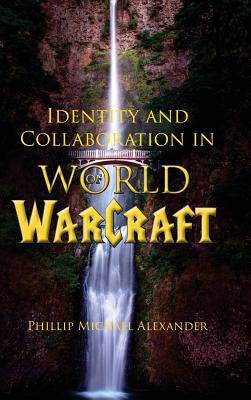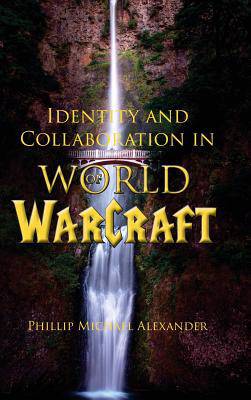
- Retrait gratuit dans votre magasin Club
- 7.000.000 titres dans notre catalogue
- Payer en toute sécurité
- Toujours un magasin près de chez vous
- Retrait gratuit dans votre magasin Club
- 7.000.000 titres dans notre catalogue
- Payer en toute sécurité
- Toujours un magasin près de chez vous
Identity and Collaboration in World of Warcraft
Phillip Michael AlexanderDescription
Electracy and Transmedia Studies Series Editors: Jan Rune Holmevik and Cynthia Haynes. IDENTITY AND COLLABORATION IN WORLD OF WARCRAFT tells the story of what happens when a Cherokee gamer, using a storyteller's perspective and a methodology built from equal parts Indigenous tradition and current academic field knowledge, spends a year in what was at-the-time the largest online video game in the world. Following from work by James Paul Gee and Bonnie Nardi, Phillip Michael Alexander ventured forth into the game world to see what someone who was a gamer long before he was an academic might see in this same fascinating virtual space. In working with, playing with, and sharing the stories of a ten-person "raid" group--players performing at the highest level within the game--he set out to determine how those gamers most invested in success built identities and communities. The resulting work is a reader-friendly, theory informed, virtual-boots-on-the-virtual-ground look at how gamers craft in-game identities, find like-minded gamers to form group identities, then organize to do staggering amounts of work in a virtual world. For anyone who ever wondered what the appeal of World of Warcraft is, Phillip Michael Alexander illustrates how some of the most active, most engaged, and most talented players spend their time in that virtual world. About the Author: Phillip Michael Alexander is Assistant Professor of Games in the Armstrong Institute of Interactive Media Studies at Miami University in Oxford, Ohio. A native of the Midwest and a mixed-blood Cherokee, Alexander's work has appeared in Kairos, Computers & Composition, and in various edited collections including Play/Write: Digital Rhetoric, Writing and Games and World of Warcraft and Philosophy. Alexander is the co-director of the Miami University Varsity Esports Program, the first Division One Varsity Esports Program in the world. Alexander is also partnered with Twitch.TV to offer courses on video game streaming and the history and culture of Esports.
Spécifications
Parties prenantes
- Auteur(s) :
- Editeur:
Contenu
- Nombre de pages :
- 144
- Langue:
- Anglais
- Collection :
Caractéristiques
- EAN:
- 9781602356115
- Date de parution :
- 25-03-18
- Format:
- Livre relié
- Format numérique:
- Genaaid
- Dimensions :
- 152 mm x 229 mm
- Poids :
- 385 g







